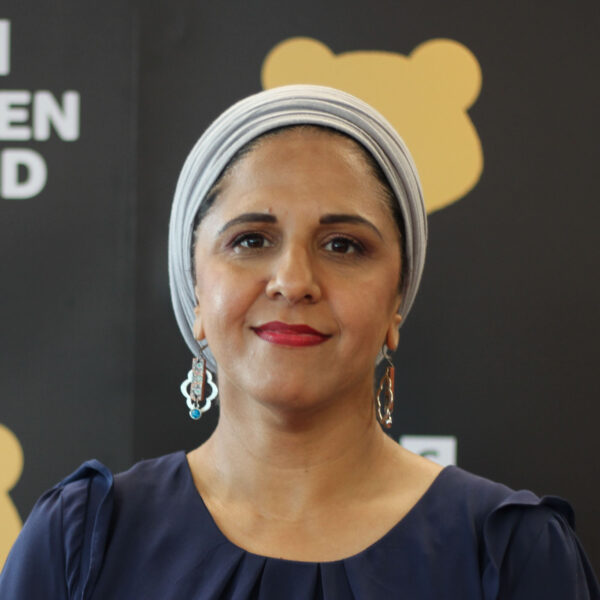Communities for Children – Transformative Philanthropy in Action
Cymraeg/Welsh
Am y dudalen Cymraeg cliciwch yma.
Transformative Philanthropy in Action
– A blog by Fozia Irfan, Director of Impact and Influence
To tackle the impact of child poverty; BBC Children in Need, together with the National Lottery Community Fund, the Hunter Foundation, the Pears Foundation and City Bridge Foundation, are investing £15m in ten areas, to empower those local communities to identify and build the support they need to make a difference.
Child poverty in the UK remains one of the most pressing and persistent social challenges. According to the latest figures, more than 4 million children in the UK live in poverty -that’s nearly one in three. Tackling this issue is not only a moral imperative but essential for the long-term wellbeing of children. There is growing recognition that developing sustainable, systemic solutions and a place-based approach is the route to impact in this space.
Each partner organisation forming Communities for Children represents a long history of supporting charities at the very heart of their communities. From this work, we know that solely focussing on reactive and emergency support is not enough to effectively address child poverty. We know that we need to help communities identify their unique issues, and help them grow local solutions.
The Human Impact of Child Poverty
It is well established that children growing up in poverty face multiple challenges. Poor housing, nutrition, and limited access to quality childcare and education are just a few of the challenges they may face. These circumstances directly affect their physical and mental development as well as their educational attainment.
The COVID-19 pandemic and subsequent cost-of-living crisis have only deepened the issue, pushing more families below the poverty line. Inflation, rising housing costs, and insecure employment have left many parents struggling to provide for their children’s basic needs.
In light of the reality that the number of children in poverty is on the up and has increased by 100,000 from the previous year, we as funders have come together to build this ambitious national programme to tackle this downward trajectory.
Why is Collaboration important?
Tackling child poverty is a complex challenge that no single organisation or sector can solve alone. It requires a coordinated effort across government, communities, and crucially, funders.
Collaboration among funders is essential to achieving long lasting systemic change and ensuring resources are allocated and deployed in the most effective way possible.
By coming together as funders and pooling our assets and knowledge we can create a much greater impact by allowing for more ambitious, large-scale programmes which individual funders may not be able to support alone. Collaborative funding also allows for place-based approaches that are tailored to local contexts, ensuring that funding is strategic and that families have access to targeted support. This means they don’t have to navigate a fragmented system of short term, disconnected projects with limited impact.
More than Grantmaking?
Communities for Children is more than a grantmaking programme – to effectively tackle child poverty, funders must adopt a multi-faceted approach that goes beyond traditional grantmaking. At BBC Children in Need, we know that the most powerful movements are built from connecting people who are focussed on the same aims and objectives. By convening local partners, and community voices to foster collaboration, share learning, and align efforts, this initiative will provide opportunities to network the grantees in order to build a community of practice and support for each other.
Capacity building is another critical pillar of this approach. Many grassroots organisations doing vital work in communities often lack the infrastructure, training, or resources to sustain long-term interventions as they are dealing with immediate need. Building the capacity to strengthen the ecosystem of support around families, requires time and resources.
Storytelling also plays a powerful role in this programme. By amplifying the voices of those with lived experience and highlighting both the challenges and successes on the ground, we can help shift public narratives and galvanise wider support.
Combining these strategies enables funders to not only respond to immediate need, but to contribute to long-term systems change by shifting practices and mindsets.
Why a Place-Based Approach?
Place-based working brings together local authorities, schools, health services, voluntary organisations, and residents to create collective solutions that are rooted in local knowledge and relationships. It is a method that responds to the specific needs of individual communities and empowers them to take ownership of the solutions, making interventions more sustainable and impactful.
Those closest to the issue often understand it best. Local residents, frontline workers, and community leaders have first-hand lived experience and knowledge of the specific challenges that their own communities face, from housing and employment to gaps in education and health services. By involving the community, we wish to impact in the design and delivery of solutions, interventions become more relevant, trusted, and responsive. Empowerment also builds local capacity and resilience, enabling communities to drive long-term change rather than relying solely on external support.
When people feel ownership over the decisions that affect their lives, they are more likely to engage, collaborate, and sustain momentum. Ultimately, tackling child poverty requires more than top-down policy, it needs grassroots leadership and community-led action rooted in lived experience.
The Way Ahead
Child poverty in the UK is a deep-rooted and urgent issue, with lasting consequences for children, families, and society as a whole. Addressing it requires more than blanket national solutions — it demands a place-based approach that recognises and responds to the unique challenges faced by different communities.
By empowering local people, fostering collaboration among funders, and working towards shared goals, we can move beyond short-term fixes toward meaningful, long-lasting change. Every child deserves the chance to grow up safe, healthy, and hopeful for the future -and by working together, across sectors and at every level, we can help make that vision a reality.
I believe and hope that the launch of this programme demonstrates that by investing together in coordinated, long term solutions, funders can play a pivotal role in breaking the cycle of child poverty and creating lasting change for future generations.

Fozia Irfan
Director of Impact and Influence
